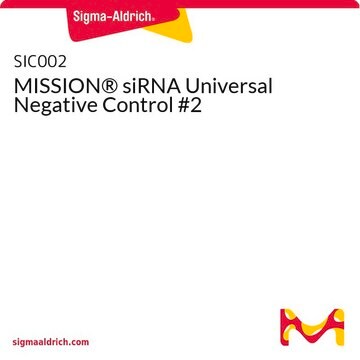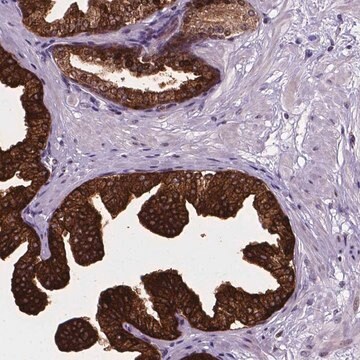EHU055111
MISSION® esiRNA
targeting human NOTCH3
About This Item
Produits recommandés
Description
Powered by Eupheria Biotech
Gamme de produits
MISSION®
Forme
lyophilized powder
Séquence cible d'ADNc esiRNA
TCTCAGACTGGTCCGAATCCACGCCTAGCCCAGCCACTGCCACTGGGGCCATGGCCACCACCACTGGGGCACTGCCTGCCCAGCCACTTCCCTTGTCTGTTCCCAGCTCCCTTGCTCAGGCCCAGACCCAGCTGGGGCCCCAGCCGGAAGTTACCCCCAAGAGGCAAGTGTTGGCCTGAGACGCTCGTCAGTTCTTAGATCTTGGGGGCCTAAAGAGACCCCCGTCCTGCCTCCTTTCTTTCTCTGTCTCTTCCTTCCTTTTAGTCTTTTTCATCCTCTTCTCTTTCCACCAACCCTCCTGCATCCTTGCCTTGCAGCGTGACCGAGATAGGTCATCAGCCCAGGGCTTCAGTCTTCCTTTATTTATAATGGGTGGGGGCTACCACCCACCCTCTCAGTC
Numéro d'accès Ensembl | humain
Numéro d'accès NCBI
Conditions d'expédition
ambient
Température de stockage
−20°C
Informations sur le gène
human ... NOTCH3(4854) , NOTCH3(4854)
Description générale
For additional details as well as to view all available esiRNA options, please visit SigmaAldrich.com/esiRNA.
Informations légales
Code de la classe de stockage
10 - Combustible liquids
Point d'éclair (°F)
Not applicable
Point d'éclair (°C)
Not applicable
Certificats d'analyse (COA)
Recherchez un Certificats d'analyse (COA) en saisissant le numéro de lot du produit. Les numéros de lot figurent sur l'étiquette du produit après les mots "Lot" ou "Batch".
Déjà en possession de ce produit ?
Retrouvez la documentation relative aux produits que vous avez récemment achetés dans la Bibliothèque de documents.
Notre équipe de scientifiques dispose d'une expérience dans tous les secteurs de la recherche, notamment en sciences de la vie, science des matériaux, synthèse chimique, chromatographie, analyse et dans de nombreux autres domaines..
Contacter notre Service technique





